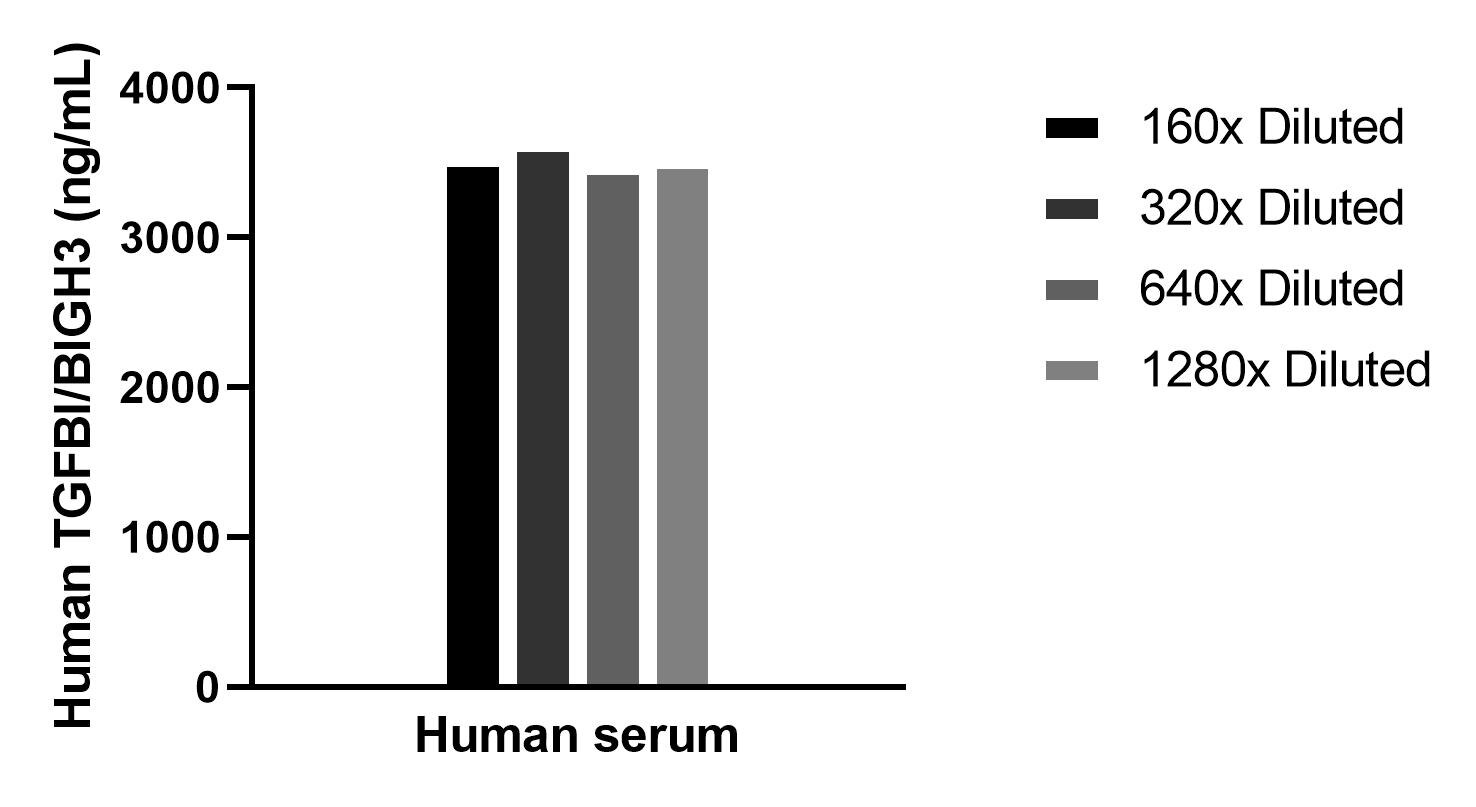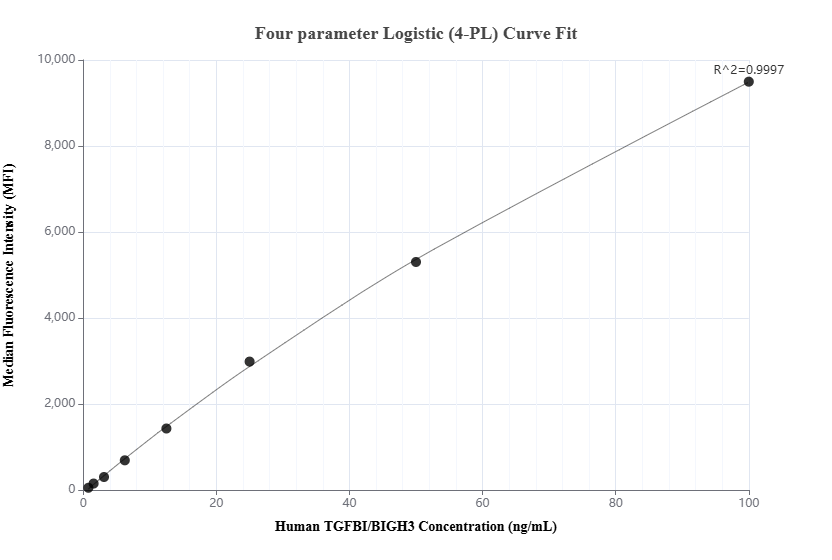Product Information
80805-3-PBS targets TGFBI/BIGH3 as part of a matched antibody pair:
MP02279-1: 80805-3-PBS capture and 80805-2-PBS detection (validated in Cytometric bead array)
Unconjugated rabbit recombinant monoclonal antibody in PBS only (BSA and azide free) storage buffer at a concentration of 1 mg/mL, ready for conjugation. Created using Proteintech’s proprietary in-house recombinant technology. Recombinant production enables unrivalled batch-to-batch consistency, easy scale-up, and future security of supply.
This conjugation ready format makes antibodies ideal for use in many applications including: ELISAs, multiplex assays requiring matched pairs, mass cytometry, and multiplex imaging applications.Antibody use should be optimized by the end user for each application and assay.
| Tested Reactivity | human, mouse, rat |
| Host / Isotype | Rabbit / IgG |
| Class | Recombinant |
| Type | Antibody |
| Immunogen |
CatNo: Eg1233 Product name: recombinant human beta IG-H3/TGFBI protein Source: mammalian cells-derived, pHZ-KIsec-C-6*HIS Tag: C-6*HIS Domain: 24-683 aa of NM_000358.3 Sequence: GPAKSPYQLVLQHSRLRGRQHGPNVCAVQKVIGTNRKYFTNCKQWYQRKICGKSTVISYECCPGYEKVPGEKGCPAALPLSNLYETLGVVGSTTTQLYTDRTEKLRPEMEGPGSFTIFAPSNEAWASLPAEVLDSLVSNVNIELLNALRYHMVGRRVLTDELKHGMTLTSMYQNSNIQIHHYPNGIVTVNCARLLKADHHATNGVVHLIDKVISTITNNIQQIIEIEDTFETLRAAVAASGLNTMLEGNGQYTLLAPTNEAFEKIPSETLNRILGDPEALRDLLNNHILKSAMCAEAIVAGLSVETLEGTTLEVGCSGDMLTINGKAIISNKDILATNGVIHYIDELLIPDSAKTLFELAAESDVSTAIDLFRQAGLGNHLSGSERLTLLAPLNSVFKDGTPPIDAHTRNLLRNHIIKDQLASKYLYHGQTLETLGGKKLRVFVYRNSLCIENSCIAAHDKRGRYGTLFTMDRVLTPPMGTVMDVLKGDNRFSMLVAAIQSAGLTETLNREGVYTVFAPTNEAFRALPPRERSRLLGDAKELANILKYHIGDEILVSGGIGALVRLKSLQGDKLEVSLKNNVVSVNKEPVAEPDIMATNGVVHVITNVLQPPANRPQERGDELADSALEIFKQASAFSRASQRSVRLAPVYQKLLERMKH Predict reactive species |
| Full Name | transforming growth factor, beta-induced, 68kDa |
| Calculated Molecular Weight | 75kDa |
| Observed Molecular Weight | 68 kDa |
| GenBank Accession Number | NM_000358.3 |
| Gene Symbol | TGFBI |
| Gene ID (NCBI) | 7045 |
| ENSEMBL Gene ID | ENSG00000120708 |
| Conjugate | Unconjugated |
| Form | Liquid |
| Purification Method | Protein A purification |
| UNIPROT ID | Q15582 |
| Storage Buffer | PBS only, pH 7.3. |
| Storage Conditions | Store at -80°C. |
Background Information
TGFBI, also named as BIGH3, Kerato-epithelin and RGD-CAP, binds to type I, II, and IV collagens. TGFBI is an adhesion protein which may play an important role in cell-collagen interactions. In cartilage, it may be involved in endochondral bone formation. TGFBI is an extracellular matrix adaptor protein, it has been reported to be differentially expressed in transformed tissues. TGFBI is a predictive factor of the response to chemotherapy, and suggest the use of TGFBI-derived peptides as possible therapeutic adjuvants for the enhancement of responses to chemotherapy.(PMID:20509890) Defects in TGFBI are the cause of epithelial basement membrane corneal dystrophy (EBMD). Defects in TGFBI are the cause of corneal dystrophy Groenouw type 1 (CDGG1). Defects in TGFBI are the cause of corneal dystrophy lattice type 1 (CDL1). Defects in TGFBI are a cause of corneal dystrophy Thiel-Behnke type (CDTB). Defects in TGFBI are the cause of Reis-Buecklers corneal dystrophy (CDRB). Defects in TGFBI are the cause of lattice corneal dystrophy type 3A (CDL3A). Defects in TGFBI are the cause of Avellino corneal dystrophy (ACD).













